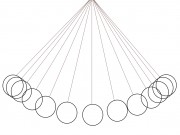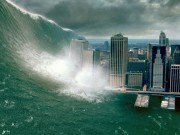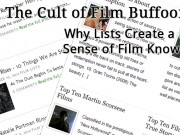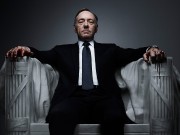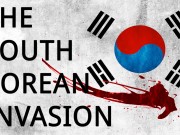It is difficult to forget the seminal Disney classic Snow White and the Seven Dwarfs, or many Disney classics for that matter. However, lately there have been a slew of new Grimm Fairy Tale adaptations that will alter mainstream consciousness of the Disney classics, and Snow White and the Huntsman will be among them. Returning to the darker themes of Grimm Fairy Tales, the film uses allusions to Joan D’ Arc, allegories to the back to nature trend, as well as a take on the current siphoning of the youth’s vitality and beauty, to create a film that will certainly divide spectators, mostly because it misses the mark.
After King Magnus (Noah Huntley) finds Ravenna (Charlize Theron) imprisoned in a wagon. He brings her to his kingdom and they marry promptly, only for Ravenna to murder him on their honeymoon night. Ravenna immediately becomes the Queen and uses her army of phantoms to expel Magnus’ followers, and keeps Snow White imprisoned in the castle for decades. Queen Ravenna confides in an old mirror to learn that Snow White’s inherent beauty and natural affinity stands in her way. After Snow White narrowly escapes, Ravenna hires a Huntsman (Chris Hemsworth) to find Snow White and return her to the castle.
Snow White and the Huntsman is a part of a possible trend of reinventing, subverting, and darkening fairy tales from the Brothers Grimm and Disney’s classic animated adaptations. The previously reviewed Sleeping Beauty, directed by Julia Leigh, is a film that is not at all meant for the eyes of Disney’s typical demographic, and is a perverse, modern take that utlizes the classic fairy tale as a foundation for comparison. These two films distort the bright, magical aura the Disney classics, and reassert the darker themes of these century-old tales. Even Mirror, Mirror returned to the Snow White tale, albeit with a more comedic-fantasy take.
Late in Snow White and the Huntsman, we see Snow White atop a galloping horse with armor a weapons, a symbol not terribly different than The Messenger‘s portrayal of Joan of Arc. She is a legendary hero that has arisen as a messiah for a land that has lost hope. Early in the film, we learn that Snow White was born by a Queen who saw the strength of a single flower blossoming in the dead of winter; its red color sticking out amongst the white snow around it. Once Ravenna comes to power, nearly all the vitality of the natural world dies. It is Snow White who has an inherent affinity towards nature, and vise versa, which guides her through her journey. The necessity for her to return to nature mirrors the trend of returning to more natural methods of living such as five-finger running shoes, organic foods, and holistic medicines.
Snow White and the Huntsman never finds an even pace or rhythm, even when the film begins with a voice-over narration explaining the exposition. The acting by the principal characters do not help either. Although Queen Ravenna is a cold-hearted, curse-giving Gypsy, it is Stewart’s Snow White that is just as cold and lifeless long before she eats the poisonous apple. Chris Hemsworth evokes the same sordid iambic pentameter from Thor and The Avengers. Charlize Theron and a select few of the dwarfs, Bob Hoskins, Nick Frost, and Ian McShane, are the only ones who happen to delight the screen with their talents, particularly Theron’s portrayal of the wicked Queen.
The allegorical, political, and social context of Snow White and the Huntsman is not enough to give the film the momentum to make it worthwhile. With poor lead acting choices and an uninspired pace, the film has no grounds to be invested in, especially with Snow White’s character being particularly weak and cold. Essentially, the film has no clear protagonist, and I found myself genuinely rooting for Queen Ravenna to reign.


